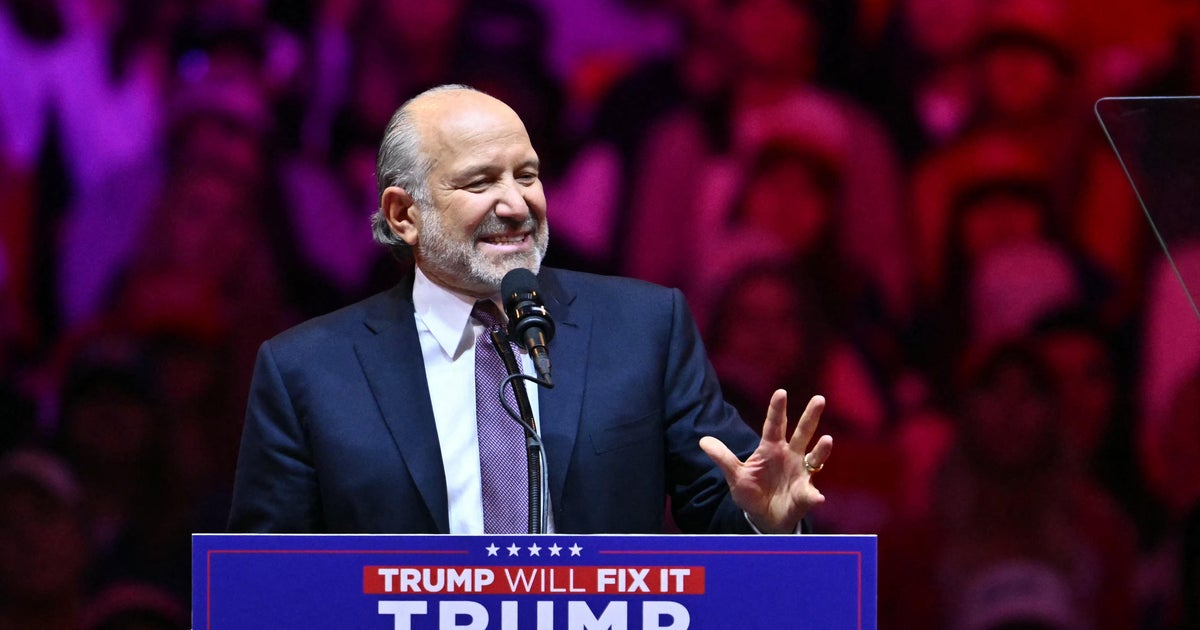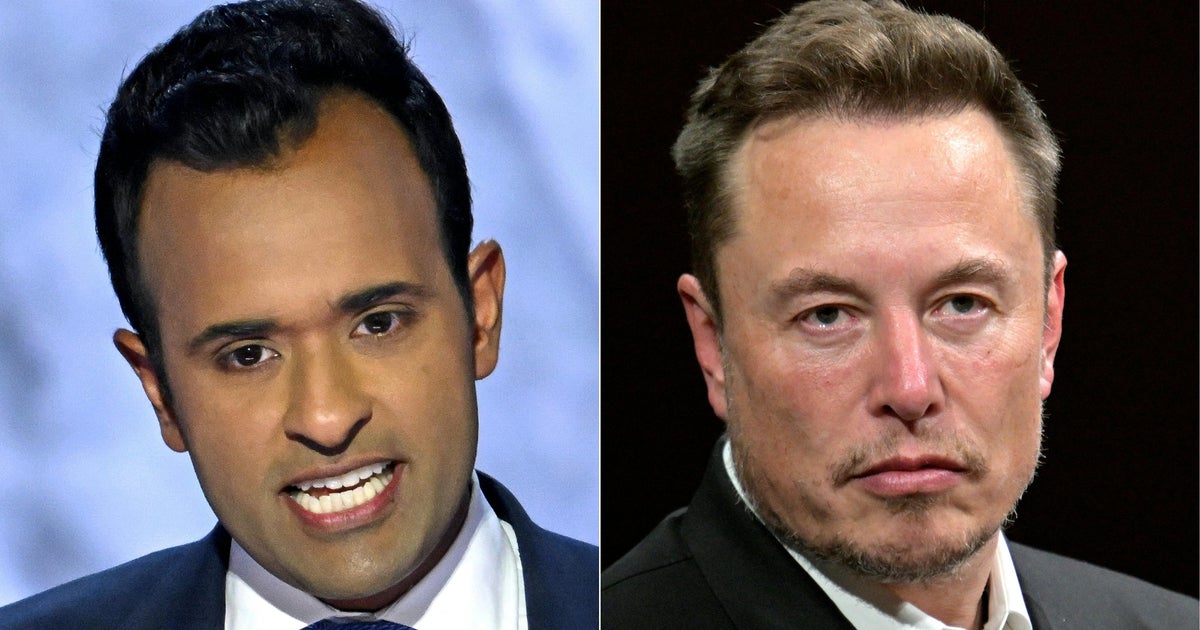Wall Street vet atop Treasury could test Trump's populism
For Donald Trump, Steven Mnuchin represents a safe choice to serve as the next U.S. Treasury Secretary, a trusted ally with a similar financial pedigree to past leaders of the agency. But naming the former Goldman Sachs (GS) banker also poses risks for the president-elect, who during his upstart campaign often bashed Wall Street as a corrosive force in politics.
Mnuchin, who served as the national finance chairman of Trump’s presidential campaign, would become the third ex-Goldman Sachs (GS) executive to run the agency during the past two decades. And under his leadership, the Trump campaign raised tens of millions in small donations from voters. CBS News’ Major Garrett reported on Monday that Trump’s transition team has recommended Mnuchin for the position.
Yet Mnuchin, a former hedge fund trader and bank CEO, also has the kind of resume that is already attracting criticism from labor groups and progressives.
“Mnuchin, at the height of the Wall Street debacle that caused the Great Recession, purchased failed banks and savings and loans then moved to foreclose on tens of thousands of families, seniors and communities of color. Those families’ losses were Mnuchin’s personal gain,” the Communications Workers of America said in a statement on Monday. “It’s difficult to think of a nominee who better embodies the culture of Wall Street greed than the former Goldman Sachs partner.”
The Treasury Secretary, who oversees the nation’s fiscal policies and manages the public debt, has traditionally been steeped in finance or economics, and by that measure Mnuchin’s background would not be unusual. Among the other financial industry executives who have led the agency, he would follow former Goldman Sachs executives Robert Rubin and Hank Paulson in the role. In other ways, Mnuchin’s career represents a break from tradition, given that he left Wall Street to pursue a career in entertainment financing, backing films such as “Mad Max: Fury Road” and “American Sniper.”
For Trump, the optics of choosing a financial industry insider to direct U.S. economy policy are tricky. The president-elect won over may voters with his vows to “drain the swamp,” or to clear out what he portrayed as corruption and cronyism in Washington, D.C. Supporters have viewed the pledge to mean in part that Trump would remove “the global elite” from leadership roles in his administration.
Yet Mnuchin, 53, seemingly fits the profile of those who many Trump supporters have vilified: a Yale-educated financier with ties to wealthy Democratic donors such as George Soros. He ran a bank that was accused of unsavory foreclosure practices following the financial crisis. Mnuchin was also a member of Yale’s Skull and Bones secret society while attending the Ivy League college. He secured a job at Goldman Sachs, where his father had retired as a general partner, and spent 17 years at the Wall Street firm.
“The draining is currently clogged, apparently,” said Karl Frisch, executive director of Allied Progress, a left-leaning grassroots organization. Mnuchin’s appointment would “run contrary to the message he campaigned on.”
While Mnuchin is thought to have the inside track for the Treasury job, other potential choices are said to include billionaire investor Wilbur Ross Jr., JPMorgan Chase & Co. (JPM) CEO Jamie Dimon and Rep. Jeb Hensarling of Texas. Ross, who is also reportedly the front-runner to head the Department of Commerce, is known for restructuring mature businesses like steel manufacturers, the types of industries that Trump has vowed to revive.
“Steve Mnuchin and Wilbur Ross are being considered for Treasury and Commerce. Both would be great choices,” investor Carl Icahn wrote on Twitter on Tuesday, noting that he had spoken with Trump about the appointments. “Both are good friends of mine, but, more importantly, they are two of the smartest people I know.”
Goldman Sachs was a Trump target during his campaign, with the then Republican nominee noting that the investment bank had given his Democratic rival Hillary Clinton large speaking fees. Trump also implied that the bank had sway over his Republican primary rival Ted Cruz, whose wife works at the bank.
“I know the guys at Goldman Sachs,” Trump said in a primary debate. “They have total, total control over him. Just like they have total control over Hillary Clinton.”
Mnuchin left Goldman to jump into film financing, backing films such as this year’s “Suicide Squad.” But it’s his role at OneWest Bank Group, where he served as co-founder, president and CEO, that may give critics the most ammunition. Mnuchin’s fellow investors in OneWest included hedge-fund billionaire George Soros and businessman Michael Dell.
OneWest, which during the housing crash bought subprime lender IndyMac from the FDIC for $1.5 billion, was accused by some homeowners of abusive foreclosure methods. The claims were enough to prompt one judge to scold the bank for what he called its “harsh, repugnant, shocking and repulsive” behavior.
California homeowners filed multiple lawsuits against OneWest, claiming that it unlawfully hiked their mortgage payments after they had filed for bankruptcy protection. OneWest was also the only bank that refused to settle with banking regulators over errors in dealing with homeowners during the housing crisis, according to The New York Times.
OneWest’s practices even prompted some homeowners to target Mnuchin’s own home, according to The Los Angeles Times. In 2011, protesters held demonstrations at his $26.5 million, 22,000-square-foot mansion in Bel Air.
“It was terrible,” Mnuchin told Bloomberg News the following year. “Something I never want to experience again.”
OneWest was bought in 2015 by commercial lender CIT Group, where Mnuchin sits on the board of directors, for $3.4 billion.



